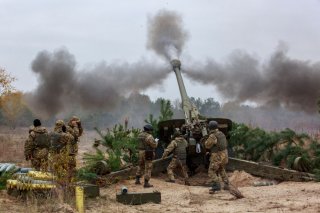Why Diplomacy Can’t End the Ukraine War
Ukraine and Russia’s constitutions, their hawkish publics, Crimea’s peculiar situation, and Eastern European skepticism about Moscow’s long-term intentions all make a negotiated peace extremely unlikely.
Once a meaningful agreement between Kyiv and Moscow is signed, its functioning must be ensured. Against the background of Russia’s behavior in the post-Soviet space during the last thirty years, securing future peace will only be possible with plausible military deterrence against further escalation. Providing substantial military support to Kyiv is thus the right strategy in three ways. It will, firstly, help to prepare meaningful negotiations now. Secondly, it will ensure a sustainable accord between Kyiv and Moscow at some point in the future. Lastly, it will keep the peace, once it is reached, intact.
In 2014, Kyiv tried to implement some popular pacifist formulas such as “Imagine there is war, but nobody attends” (in German: “Stell Dir vor, es ist Krieg und keiner geht hin”) or “Building peace without weapons” (in German: “Frieden schaffen ohne Waffen”) in Crimea. This Ukrainian behavior occurred ten years ago with the West’s explicit approval, if not under active Western pressure. The result has been the largest European war since World War II. A lesson learned from this disaster is that Kyiv’s and Western behavior should be guided by empirical analysis of actual challenges rather than well-motivated but futile intentions and irrelevant historical references.
Dr. Andreas Umland is an Analyst at the Stockholm Center for Eastern European Studies in the Swedish Institute of International Affairs. The article summarizes the results of a policy advice series project implemented within four separate reports throughout 2023. See: https://sceeus.se/en/publications/.
Image: Shutterstock.com.

